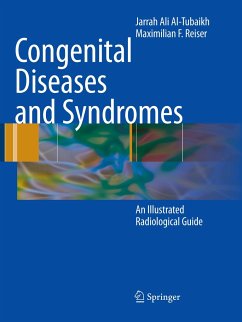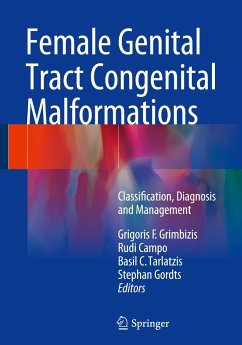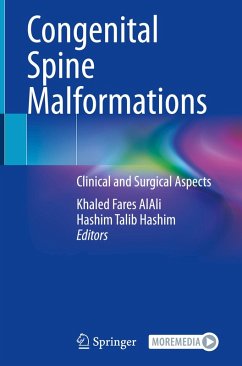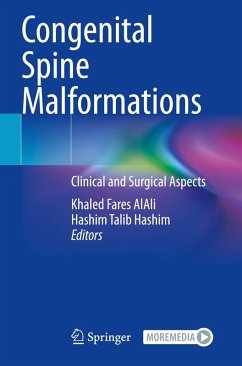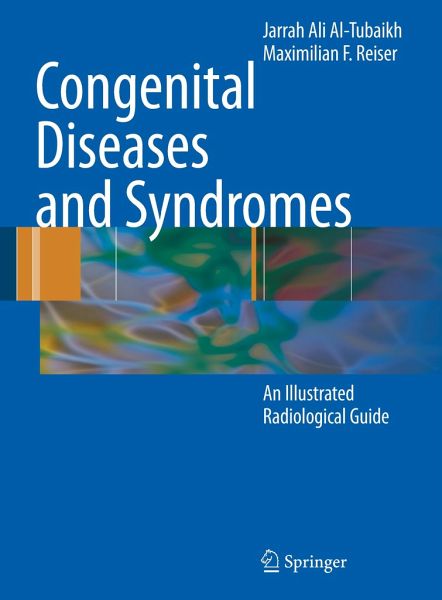
Congenital Diseases and Syndromes
An Illustrated Radiological Guide
Versandkostenfrei!
Versandfertig in 6-10 Tagen
177,51 €
inkl. MwSt.
Weitere Ausgaben:

PAYBACK Punkte
89 °P sammeln!
This book is designed to serve the radiologist as an easy-to-use visual guide that illustrates the typical diagnostic radiological features of the most common congenital diseases and syndromes. Chapters are organised according to body system, and focus on the CNS, the head and neck, the chest and heart, the abdomen and pelvis, and the musculoskeletal system. A final chapter is devoted to phacomatoses. Each syndrome or disease is illustrated by multiple images as well as by high-quality digital medical illustrations depicting those radiological signs that are difficult to detect. The reader is thereby familiarised with the various congenital anomalies from the radiological point of view. In addition, etiology, diagnostic criteria, and main symptoms are described, and potential differential diagnoses highlighted. This book will be immensely useful for junior radiologists, radiology students, and doctors in any specialty who are interested in congenital malformations and syndromes.
Radiology to me is an art more than a science; an art of imaging the human body, and an art of extracting information from an image. Radiology today is a vital specialty that almost no other medical specialty can work without. Congenital anomalies and syndromes are complex subjects in all medical specialties. They require knowledge of the normal anatomy and of the embryological basis of organogenesis. The importance of recognizing a congenital malformation or an anomaly, which can be the tip of an iceberg of a more complex syndrome, is to prevent future manifestations of a s- drome if possible or to reduce its severity. Due to this concept, I had an interest in studying how to use the radiological modalities in diagnosing congenital malfor- tions as early as possible. Although radiology offers very powerful tools for diag- sis, the basics of medicine are still the main tools to be used for diagnosis. History, observation, clinical examination, and laboratory investigations are essential elements for diagnosis, which need to be used before radiology investigations are initiated. The idea of this book is based on a simple principle: it is to link radiology to these basic medical tools. The book is written for junior radiologists, radiology students, and doctors interested in congenital malformations and syndromes in any specialty. Each disease is represented with a de? nition, description, etiology, diagnostic cri- ria, main symptoms, and its typical diagnostic radiological features on the modern radiological modalities available today.





